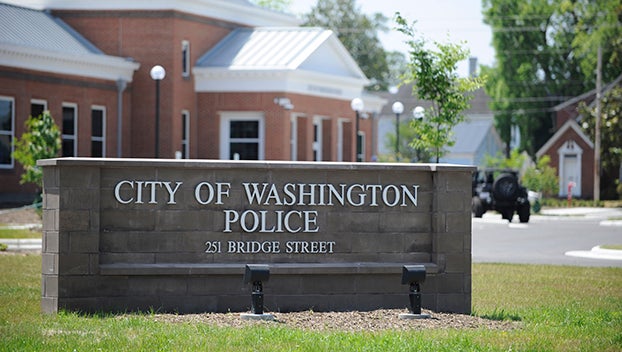Early school start proposed
Published 1:00 am Tuesday, March 1, 2011
State lawmakers are considering two proposals that would reverse a seven-year old law affecting school-system calendars and return students to the classroom earlier in August as soon as the 2011-2012 school year.
Local education leaders and some state leaders have said they would welcome the change č which would let high-school students take their final exams before the Christmas break and enable college-bound students to more-effectively compete for admittance to their preferred schools.
Beaufort County Schools Superintendent Don Phipps said it may already be too late to change the 2011-2012 school calendar without unduly affecting families and school employees who have already made plans for this summer.
“We definitely want to go with a new calendar, but we may need more time to plan,” he said. “There comes a date and a time when it’s not prudent to change.”
Phipps said that whether the change occurs with the coming school year or in a later school year, “it’s going to result in a short summer” for students, faculty and staff the year of the change.
The Beaufort County Board of Education has already set its 2011-2012 calendar, with teachers scheduled to return to school Aug. 18 and classes scheduled to begin Aug. 25. Under this calendar, the first semester will end Jan. 19, 2012, and the last day of classes for the year will be June 7, 2012.
When it approved this calendar, the board anticipated a possible change this year in the law. Its members cautioned that the calendar was tentative and delayed approval of a calendar for the 2012-2013 school year pending action by state lawmakers.
Responding to state tourism interests, which pushed for a later school start in an effort to lengthen the summer travel season, the N.C. General Assembly in 2004 approved legislation that set the Aug. 25 start date for schools across North Carolina.
It also eliminated five days from the calendar while keeping teacher salaries intact.
Efforts to overturn or amend that legislation almost every year since were routinely blocked by powerful coastal legislators.
Rep. Dale R. Folwell, a Forsyth County Republican, is one of three primary sponsors of a proposal now before state lawmakers that would give local school boards flexibility in setting their school calendars and reverse legislation that shortened the school year and mandated that schools across the state not start before Aug. 25 each year.
Folwell’s bill gives to local school boards the choice of setting their school calendar č including the starting and ending date of schools, keeps 180 days of instruction and extends the school year for faculty and staff to 220 days from 215 by restoring lost teacher workdays.
Folwell said it’s time to return decisions about the calendar to local school boards.
“Nobody knows their area quite like the locals do,” said Folwell, who serves as speaker pro tempore in the N.C. House of Representatives, in a recent interview. “This bill gives flexibility to those local boards to set their own calendars.”
The bill reflects the effort by Republicans in the General Assembly to “push the power back down to the people,” he said. “The title of the bill says it all ‘Putting Students First.’”
Folwell said the bill would allow coastal communities to start school later in the summer, if they want, but give others the chance for an earlier start.
“If people on the coast want to promote tourism, they can set their calendar any time they want to,” he said.
Folwell’s bill was referred to the House Committee on Education, which had been scheduled to discuss it today. A notice sent late Friday said the bill had been removed from the committee’s schedule.
“The only thing the bill’s sponsors are asking for is a hearing,” he said. “So we can demonstrate how this bill speaks to putting students first.”
Rep. Bill Cook, a Republican who represents Beaufort County in the state House, is a co-sponsor of the bill.
It faces opposition from some in the tourism industry and some educators who oppose extending the school calendar without increasing teacher salaries.
It also has bipartisan support, including that of Rep. Marvin W. Lucas, a Cumberland County Democrat who is also a retired principal.
Lucas is one of two primary sponsors of a second school-calendar bill that would allow schools across North Carolina to start as early as Aug. 15 each year and set first-semester exams before the winter break. Unlike Folwell’s bill, however, Lucas’ bill does not extend the school year.
That bill has been referred to the House Committee on Commerce and Job Development.
Phipps said there are “overwhelming benefits” to students for an earlier start to the school year.
Besides allowing students to take their exams before the winter break, an earlier start to the school year would let public schools better coordinate their calendars with local community colleges, let those students who graduate from high school in December to start their college careers without delay in January and let students applying to college submit their first-semester grades in a more timely manner, he said.




